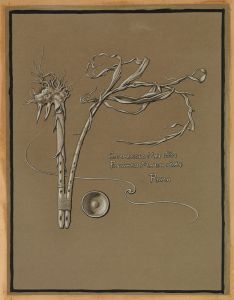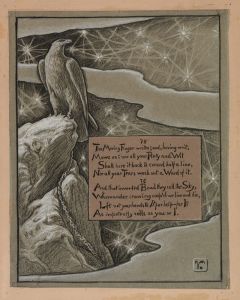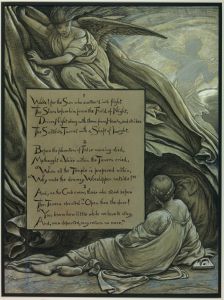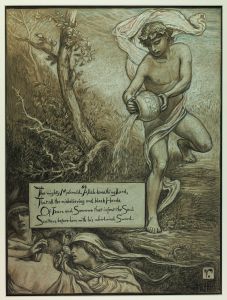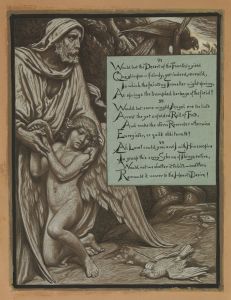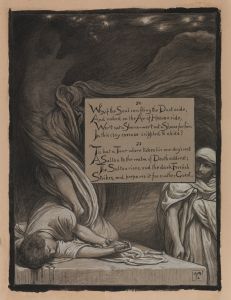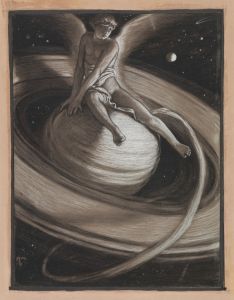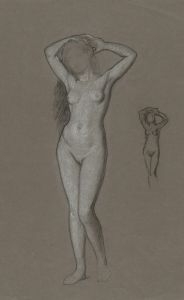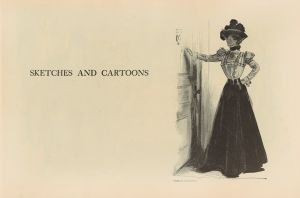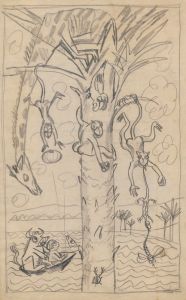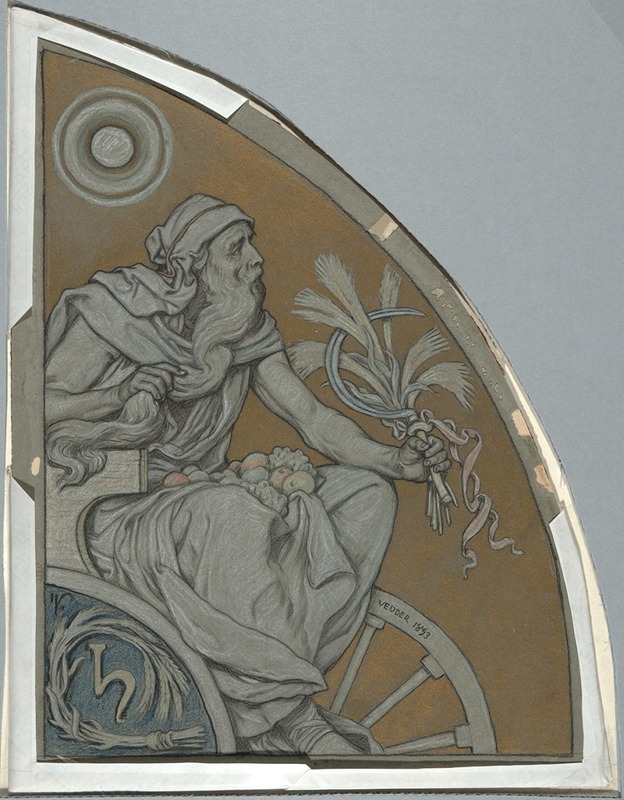
Cartoon for Saturn
A hand-painted replica of Elihu Vedder’s masterpiece Cartoon for Saturn, meticulously crafted by professional artists to capture the true essence of the original. Each piece is created with museum-quality canvas and rare mineral pigments, carefully painted by experienced artists with delicate brushstrokes and rich, layered colors to perfectly recreate the texture of the original artwork. Unlike machine-printed reproductions, this hand-painted version brings the painting to life, infused with the artist’s emotions and skill in every stroke. Whether for personal collection or home decoration, it instantly elevates the artistic atmosphere of any space.
Elihu Vedder was an American symbolist painter, known for his imaginative and often mystical works. One of his notable pieces is "Cartoon for Saturn," which is part of a series of works that reflect his interest in mythology, symbolism, and the human condition. Vedder's art often explores themes of time, fate, and the cosmos, and "Cartoon for Saturn" is no exception.
"Cartoon for Saturn" was created during a period when Vedder was deeply engaged with the symbolic representation of mythological figures. Saturn, in Roman mythology, is the god of agriculture, wealth, and time, often associated with the Greek god Cronus. Saturn is frequently depicted as a figure who devours his children, symbolizing the destructive nature of time. Vedder's interpretation of Saturn likely draws on these mythological themes, although specific details about the composition and elements of "Cartoon for Saturn" are not extensively documented.
Elihu Vedder was born in New York City in 1836 and spent much of his career traveling between the United States and Europe, particularly Italy. His work was heavily influenced by the Pre-Raphaelite Brotherhood and the broader Symbolist movement, which sought to express ideas and emotions through symbolic imagery. Vedder's style is characterized by a meticulous attention to detail and a penchant for the fantastical and the allegorical.
Throughout his career, Vedder was fascinated by the concept of time and its impact on human life. This fascination is evident in many of his works, including "Cartoon for Saturn." The piece is part of a broader body of work that includes illustrations for literary texts, such as his famous illustrations for Edward FitzGerald's translation of "The Rubaiyat of Omar Khayyam." These illustrations, like "Cartoon for Saturn," reflect Vedder's interest in the passage of time and the existential questions it raises.
Vedder's work was well-received during his lifetime, and he was considered a prominent figure in the American art scene. His paintings and illustrations were exhibited widely, and he was a member of the National Academy of Design. Despite his success, Vedder's work often defied easy categorization, blending elements of realism, symbolism, and fantasy.
"Cartoon for Saturn" exemplifies Vedder's unique artistic vision, combining mythological themes with a deep exploration of human experience. While specific details about the painting's composition and reception are limited, it remains a testament to Vedder's skill as a symbolist artist and his ability to convey complex ideas through visual art.
Today, Elihu Vedder's works, including "Cartoon for Saturn," continue to be studied and appreciated for their rich symbolism and imaginative quality. They offer insight into the 19th-century fascination with mythology and the symbolic representation of universal themes. Vedder's legacy as a symbolist painter endures, and his works remain an important part of the American art historical canon.





